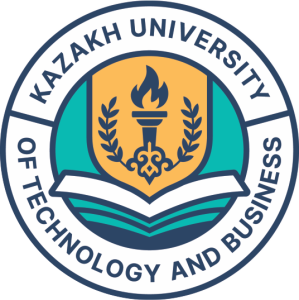Варианты зачисления на курс
«Foreign Language» English level B1
Государственный и иностранный языки
Arenova M.Zh., Candidate of Philological Sciences, Assistant Professor
Zhanabekova G.Zh., Candidate of Philological Sciences, Assistant Professor
Zhortushinova A.K. - Master of pedagogical sciences, senior lecturer
Serimbetova R.A.- master of pedagogical sciences, senior lecturer
Kuntubaeva G.O. - master of pedagogical and psychological sciences, senior lecturer
Kazbekova M.K. - Master of pedagogical sciences, senior lecture
AlzhanovaSh.A. - senior lecturer
Khasenova G.A., Master’s Degree, Senior Lecturer
Kurbanov D.E. - Master of pedagogical sciences, lecturer.
Nam Y.P. - Master of pedagogical sciences, Assistant
Zharmukhamedova M.E-Master of pedagogical sciences, Assistant
1.Characteristics of MOOCs (Massive Open Online Courses):
Massive: MOOCs are designed to support a large number of participants. Unlike traditional classes, which may be limited to a few dozen students, MOOCs can have thousands or even millions of learners from all over the world. Open: Most MOOCs are open to anyone with internet access. They do not usually require prior qualifications or fees (although some offer paid certificates or advanced features). Online: MOOCs are delivered entirely online, allowing learners to access materials, lectures, forums, and assessments from anywhere at any time. This supports flexible and self-paced learning. Course: Like traditional courses, MOOCs have a structured curriculum, including lectures (often in video format), reading materials, assignments, quizzes, and sometimes peer-reviewed tasks. Interactive Learning: Many MOOCs incorporate forums, peer interactions, discussion boards, and sometimes live Q&A sessions to encourage collaboration and engagement. Certification Options: Although participation is often free, learners can typically pay a fee to receive an official certificate of completion or even academic credit in some cases.
1.1 Diverse Subjects: MOOCs cover a wide range of topics, including computer science, business, humanities, health, and more, often provided by top universities or industry leaders. Use of Multimedia and Technology: MOOCs use videos, interactive simulations, digital textbooks, and auto-graded assignments to enhance the learning experience.
1.2 Goals of Studying MOOCs: To Gain New Knowledge and Skills. Learners use MOOCs to acquire knowledge in a specific subject area or to develop practical skills relevant to their personal or professional goals. To Access High-Quality Education MOOCs provide access to courses created by top universities and experts, offering high-quality educational resources to a global audience. To Support Career Development Many people take MOOCs to improve their job prospects, gain industry-relevant certifications, or transition into a new career field.
1.3 Learning Outcomes of MOOCs: Improved Subject Knowledge, learners gain a deeper understanding of the subject matter through structured content, practical lessons assessments, development of Practical Skills .Self-Discipline and Time Management because MOOCs are self-paced, learners often improve their ability to manage time, set goals, and study independently. Certificate of Completion or Credential, many MOOCs offer a certificate or even professional accreditation, which can enhance a resume or support career advancement. Increased Confidence and Motivation for Further Learning-completing a MOOC can boost learners’ confidence and inspire them to continue studying or pursue formal education.
2. Prerequisites for MOOCs: Basic Computer Skills- learners should be able to use a computer, browse the internet, and manage files and software tools. Internet Access-a stable internet connection is required to stream video lectures, participate in discussions, and complete assignments. Language Proficiency-most MOOCs are offered in English, so a sufficient level of English reading, writing, and listening comprehension is often necessary.
3. Postrequisites of MOOCs (What learners can do after completing a MOOC)
1. Enrollment in More Advanced Courses-after completing a basic MOOC, learners are often prepared to take more advanced or specialized courses in the same subject area.2. Application of Knowledge in Real-Life Situations-learners can apply the skills and knowledge gained in their jobs, studies, or personal projects.3. Earning Professional Certificates or Academic Credits-in some cases, completing a MOOC can count toward professional certification or even university credit (depending on the platform and course provider).4. Career Advancement or Job Search-learners may use MOOC certificates to strengthen their resumes, apply for new positions, or pursue promotions.
Гости не имеют доступа к этому курсу. Войдите в систему.
